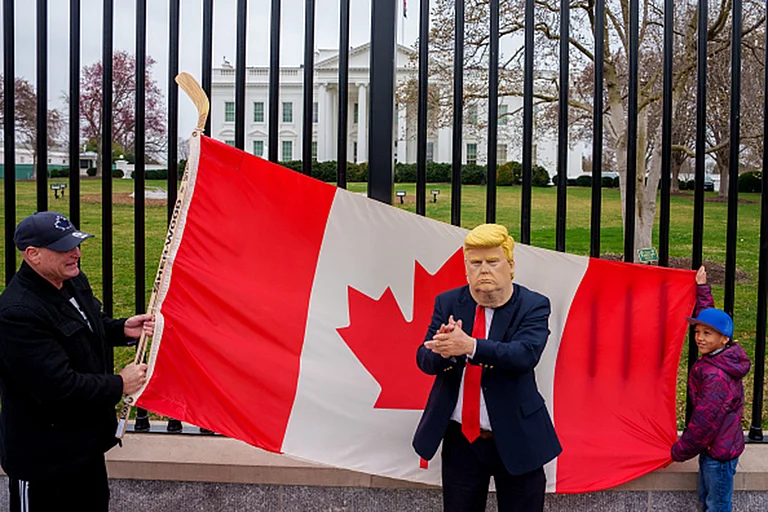Amid speculations over US President Donald Trump's "Liberation Day tariff" plans to be revealed on April 2, White House spokesperson Karoline Leavitt on Monday confirmed that there won't be any exemptions on reciprocal tariffs while asserting that the "unfair trade practices" need to stop.
"The goal of Wednesday is a country-based tariff, but certainly sectoral tariffs. The President has said he's committed to implementing them, and I would leave it to him when he makes that announcement," Leavitt said, while adding, "It's time for reciprocity", as per a report by NDTV.
Right after assuming the office for his second tenure as the US president, Trump started signing executive orders on reciprocal tariffs aiming to match other countries' higher tariff rates while arguing that the tariff discrepancy is unfair for Americans.
What Did The White House Say?
Commenting on the Trump administration's decision to impose reciprocal tariffs as an effective measure to bring back balance in trade practices, the White House Press spokesperson said, "If you look at the unfair trade practices that we have-- 50 per cent from the European Union on American dairy. You have a 700 per cent tariff from Japan on American rice. You have a 100 per cent tariff from India on American agricultural products. You have nearly a 300 per cent tariff from Canada on American butter and American cheese."
"This makes it virtually impossible for American products to be imported into these markets, and it puts a lot of Americans out of business and out of work over the past several decades," she added.
Trump's Tariff Spree
Right after assuming the office for his second tenure as the US president, Trump said that he could put 25 percent trade tariffs on Canada and Mexico starting on February. For products from China, Trump announced a levy of 60 percent levy.
In his inaugural address, Trump pledged that tariffs would be imposed and said foreign countries would be paying the trade penalties, even though those taxes are currently paid by domestic importers and often passed along to consumers.
However, a day after pausing planned tariffs for at least a month for Mexico, US President Donald Trump on February 4 agreed to do the same with Canada after a meeting with Prime Minister Justin Trudeau. However, Trump's tariffs against China are still slated to go into effect on Tuesday.
On February 3, Trump paused the tariffs it imposed on Mexico. In a tweet, Claudia Sheinbaum Pardo, President of Mexico in her conversation with USA President Donald Trump said that the tariffs have been paused for a month.
Later, he threatened the European Union with a 200 percent retaliatory tariff on European wine, champagne, and spirits if the European Union went forward with a planned tariff on American whiskey. The European tariff was expected to go into effect on April 1.
Trump has also threatened Canada with new tariffs targeting Canadian lumber and dairy products. Citing Canada's roughly 250% tariff on US dairy exports to the country, President Trump said in an Oval Office address, "Canada has been ripping us off for years on lumber and on dairy products," CNN reported.
Moreover, he doubled his planned tariffs on steel and aluminum products imported from Canada to 50 percent. The move came in response to Ontario's decision to impose a 25 percent tariff on its electricity exports to the United States.
More recently, Trump announced a 25 percent tariff on imports from countries purchasing oil or gas from Venezuela. Taking it to his social media platform Truth Social, Trump announced that Venezuela has been “very hostile” to the US and countries purchasing oil from it will be forced to pay the tariff on all their trade to the US starting April 2.
Adding one more item to his growing list of executive orders, US President Donald Trump also announced sweeping plans to impose a permanent 25 percent tariff on all cars imported into the United States. The tariffs will take effect on April 2.

















